- Call us: 0116 478 3679
- Email us: info@glenfieldelectrical.com
The short and simple introduction to electric vehicle charge points
Most electric car owners with off street parking will charge their vehicles overnight at home because it’s easy, convenient and almost always the cheapest way to charge your car.
There is a wide range of charging equipment available with the average cost of an installation of a fast charger costing between £1000 according to Checkatrade.
For almost all cars a 7kW per hour charger works out to be economical and efficient and will fully charge a mid-range car in between 5 and 9 hours. All the popular chargers are wall mounted, either in your garage or outside. They’re smart chargers, with an app controlling how you use them and with a wide variety of features.
Typical installations take around three hours, depending on the location of your electricity supply and where you’ll charge your car. Usually, an installer must have the relevant accreditation for the specific make of charger.
What you need to know about chargepoint installation…
There are around 40 different manufacturers offering you electric vehicle charging equipment. Like any electrical equipment the prices vary widely, as do the manufacturers’ claims about exactly what they can do.
In our view the manufacturers will claim the more expensive equipment have more features and are better quality. You can pay twice the cheapest price, but we doubt you get twice the cheapest quality. At the same time we’d question whether the cheapest options represent the best value, cheap can give you hassle and problems. If you have problems with charging it might screw up that special or essential journey, so we don’t like cheap.
Overall, beware installers offering an online package with the best prices. It could mean they have skimped on the quality of the product they plan to install.
So we tend to supply and install two specific makes, carefully chosen for their quality and good pricing that we think represents excellent value for money, the right functionality and good reliability.
We can install other equipment if you a strong specific preference, although we will put your safety first so may say no to equipment we don’t know or trust.
What speed of charger do you need?
Aside from the different makes, you can choose from different rates of charge. The more powerful your charge point, the faster the rate of charge. The most popular charge points are 3.7kW and 7kW, with the 7kW being roughly twice as fast as the 3.7kW.
As a broad guide, a Tesla Model S will charge from empty to full, using a 7kW charger, in around 9 hours and for its full range of 388 miles you’ll pay about £16. Most people choose the 7kW option.
Faster electric charge points are available, starting from 22kW, but they require a 3-phase electrical supply and the equipment is more expensive. Few homes already have 3-phase electricity, and it is another expensive option on top of the extra cost for the faster charger.
If you can charge your car overnight (or when you sleep if you work shifts), a 7kW charger is fast enough for most people.

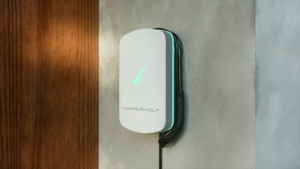
Tethered Hypervolt chargepoint
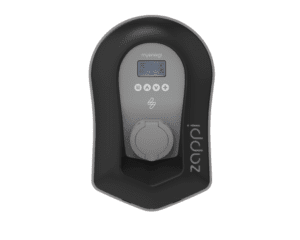
Untethered MyEnergi Zappi charger
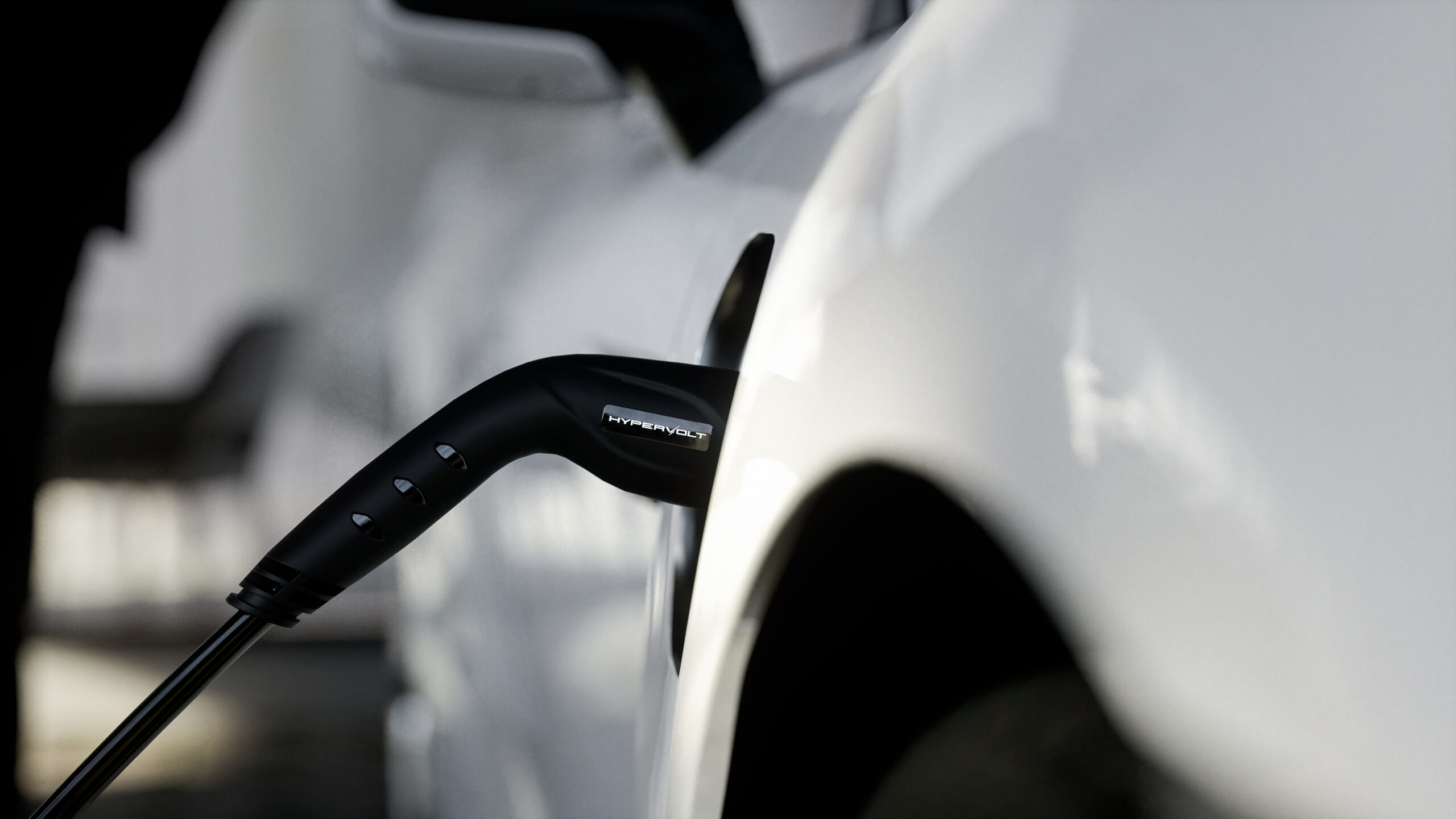
To book in a free, no obligation survey, or get the answers to any of your questions, just call us now on 0116 2873 226
Do you have to have an electric car charger?
It is possible to charge an electric car using a standard three pin plug connector, but it really is slow (tortoise slow), inefficient and could put stress onto your home power network. We don’t recommend it. Most electric cars will come with a cable that lets you do this but, as an example it will take 17 hours to fully charge the 40kWh battery in the Nissan Leaf. Bear in mind as well that a typical electric car driver does 80 per cent of their charging at home.
Do you have to have a smart charger and what do they do?
The simple answer is likely to be yes if only because government grants only apply to chargers with smart functionality, unfortunately the grant expired for homeowners in April 2022. This allows the car to talk to the charger and vice versa, usually via an app on your smartphone.
You can set your charger up to run when it’s most economical to charge and the power will be switched off once the battery is full, plus you can track your charging costs. You can also balance the power used in your home, so if you’re using a lot of power elsewhere a good smart charger will avoid overloading your electrical supply.
If you want you can also connect several of the apps to Alexa or similar technology. If you hate technology, don’t worry. Most apps are pretty easy to use. We give free support, you can see how to use our chosen equipment on video, we doubt you’ll have many challenges around app use.
With some systems, as supplied by a company that has a network of public chargers, you can also access their public chargers using the same app, but you can get a separate app anyway. You’ll also need to get different apps to access some of the general public charging networks as well.
What electric vehicle charging equipment do Glenfield Electrical recommend?
We like to make sure you get excellent quality for a reasonable price, so we fit either the Hypervolt Home 2.0 or Myenergi Zappi. They’re not the cheapest but we think the combination of quality and useful features gives great value for money.
We like the Hypervolt Home 2.0 7 kW fast charger as it has the following features:
- Load management
- Charge scheduling
- Advanced cost reports
- Can integrates with Alexa
- Solar integration (at no extra cost)
- 3-year warranty
- Fuse protection Free software updates
- LED status indicator
- No earth rods required (provides a neater installation)
- Works with all well-known car brands
The Zappi has all the same features. We like the Zappi combination of quality and functionality at a reasonable price, and some of our customers like their extra green credentials as a company.
One of the key features is the safety already built into the system so that you don’t need earth rods (to earth the electricity supply). If you choose a system without this feature, depending on the location of the charge point, you may find the need for earth rods means intrusive work is required to your drive or the surrounding area. So ask the question.
Why do we recommend those two makes?
As we said, neither of these are the cheapest on the market but here’s our view. Reliability is important. If you have a problem and your car doesn’t charge overnight as you planned, and you’re relying on your car to get to a vital appointment, you could be running around looking for a fast-charging station.
We occasionally install other makes if you have a specific reason for choosing that make
Do you need a specialist electrical vehicle charger installer?
Any qualified electrician can in theory install your charging point as long as they have the specific skills and specialist accreditation for the hardware.
We’d recommend you use a specialist installer simply because you can be confident they have gone through the specialist training that most equipment manufacturers now provide. Your electrician will be working with higher currents than normal for domestic work and may require experience and understanding of advanced earthing and bonding.
Always look for evidence of accreditations and training when you choose an installer, most will advertise this on their website.
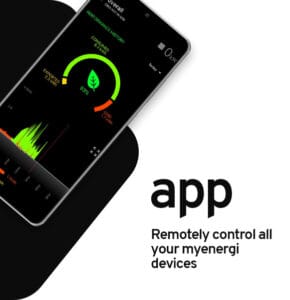
Monitor your EV charger from your phone with the Zappi app
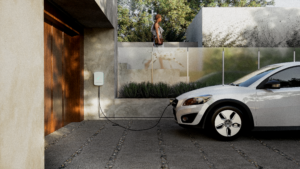
Control your Hypervolt charger from your phone
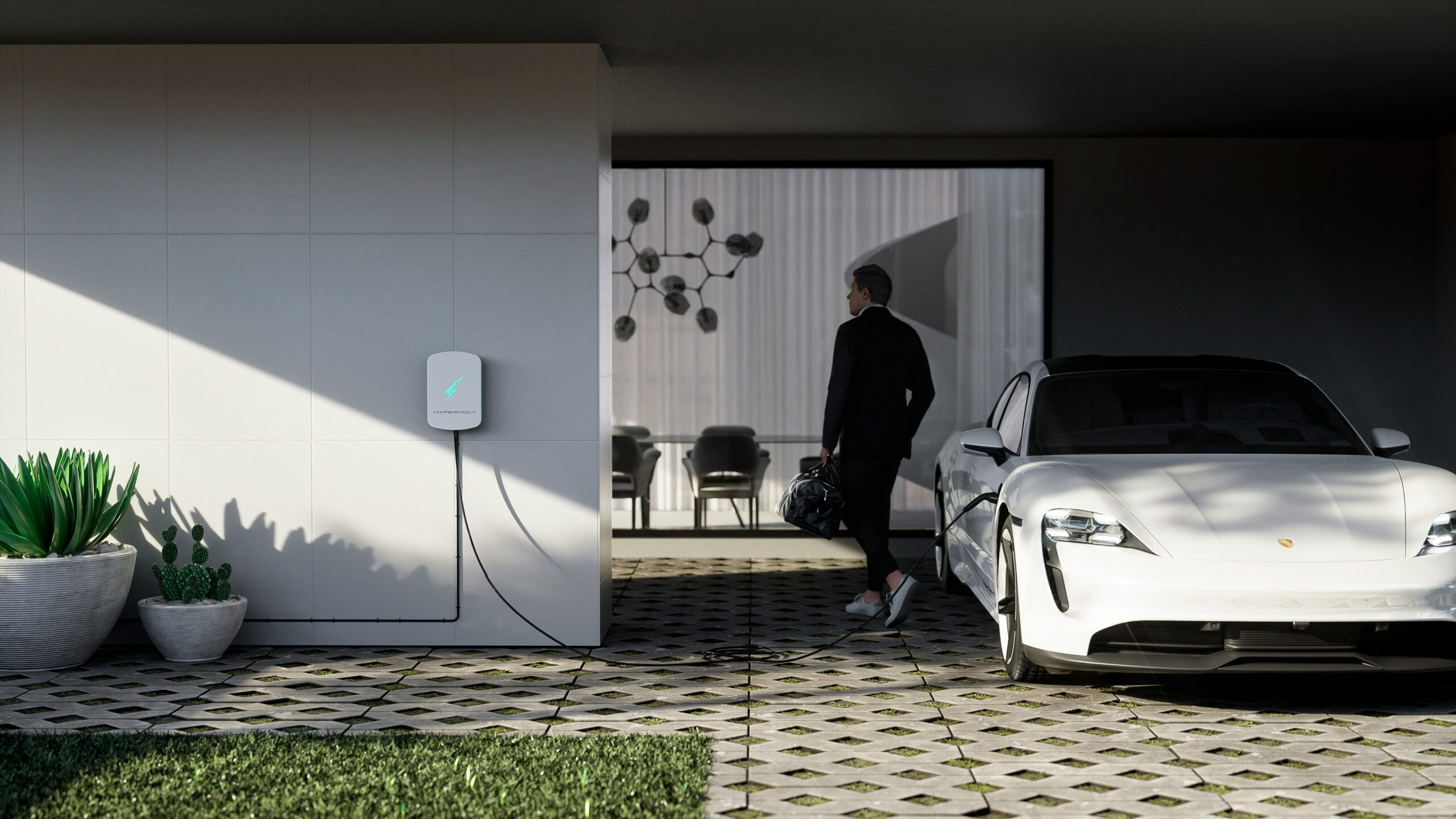
To book in a free, no obligation survey, or get the answers to any of your questions, just call us now on 0116 2873 226
Is a survey necessary before you order an installation?
In almost every case we’d say yes, and here’s why. Lots of installers will say it’s not necessary but we’d prefer to see where you want the installation to go and make sure that will work and be safe before we quote you a price. You can have a meaningful discussion with us on site. That way you can be certain you are happy about what is best for you and your home.
You will see a number of websites quote what looks like a fixed fee for your electric vehicle charger and installation. This assumes your installation is standard and will require a minimum amount of equipment and cable with no additional work required relating to your electricity supply. Once you call you’ll be asked for photos and/or videos to help them plan the installation and give you a better estimate of the price.
Why we recommend you need a proper survey before an installation
If you have a recent new build property and an empty garage, then you may find the final fee is the same as that quoted on a website.
But our experience is that in most cases, except for new build properties with an empty garage, there is no such thing as a standard installation. Part of the reason behind that is because we’re very safety conscious and electricity can be dangerous.
There are a number of variables, such as where you want the equipment to be located or where the car is best located to charge throughout the year. Above all you should make certain the power supply will be safe. That includes checking no additional earths or bonds are needed. How the power supply is run to the charger is regulated by the government, obviously with safety in mind,
So we recommend a survey by one of our qualified surveyors, and we don’t charge for that, it’s all part of the service. That way you know the final price before you start, your installation will be hassle free and we’ll make sure you’ll get a safe installation.
If you go to an installer who quotes the price with no survey, do ask to check the terms and conditions before you place your order and ask if the price is fixed. If you’ve placed an order and extra work is needed, you’re not in the best position to haggle over the charge for extra work if the price for that work seems steep.
How do you choose a good installer?
Here’s our suggested list of what’s important to listen out for or ask when you pick up the phone to an installer
- Ask to what extent the price quoted is fixed. If they can’t give you a clear answer, beware
- Ask what equipment they recommend and why. It’s a simple question and there should be a good answer
- Ask what the warranty you get for your charger and installation. Equipment manufacturers will generally give at least a 3-year warranty, check what the installer offers to cover their work
- Make sure you don’t have to wait too long for your installation date, if they’ve got too much demand you may struggle to get support if you have a problem
- Make sure you can get through on the phone quickly and easily with your first call. If not you may struggle to get support later if you need it
- Find out what support will be available once you’ve had your charger installed. It should be comprehensive and fast. If you have a problem you want to be able to fix it, fast
- We’d say that two things are vital. Your safety comes first whenever it comes to electricity, so make sure your installer has a good reputation. The second is support, both on the phone for advice and on site if you need it. We give a guarantee on everything we do, but above all our over-riding guarantee on any work we do is this “if you’re unhappy about anything we do, let us know and we’ll fix it.”
Which is best, a national installer or a local one?
That’s down to your choice. Some people prefer to deal with big companies because of their wide experience. Some people prefer local companies because they’re close by if they need support, and they must be more careful of their reputation in your area.
Can an electric vehicle charger be installed anywhere?
Generally the answer is yes. You’ll want the charger installed close to where your car will normally be charged. The regulations are quite strict about where and how the wiring runs from the power supply to the charger, but we’d expect to be able to find a safe solution to even the most difficult sites. In most cases this won’t be an issue.
Are there different types of charging cable?
You may have heard there are different types of cable available, but this is no longer really an issue for you. Mode 3 charging cables are now the standard for all home installations, and you don’t need to know about mode 1 or 2 cables, they’ve been replaced by mode 3. This supports smart charging stations making sure they havw much more functionality.
And here’s the 7 reasons we think you should choose Glenfield Electrical for your EV installation
- The equipment we install is carefully chosen for its quality and usable functionality at a reasonable price, so you get the best value for your investment
- Our free survey means we can talk with you face to face, to make sure you get exactly what’s best for you, make certain your installation will be safe and the price will be fixed because we’ve seen where the charger needs to go
- Our team are trained to give you all the information you need to choose the right equipment and then use that equipment without any problems or hassle
- Our track record of EV installation means we know exactly what we are doing, giving you complete confidence in every aspect of your installation
- Our installation team are prompt, polite and professional, always, so you’ll love our service
- You get the manufacturers’ guarantee for the equipment, our 5-year guarantee for our workmanship and our over-riding guarantee, “if you’re unhappy about anything we do, let us know and we’ll fix it”
- If you need to call us for support, the phone will be answered promptly and we’ll help you promptly
Actually there’s a number 8. Our customers love what we do, and as proof, just take a look at our Google reviews.
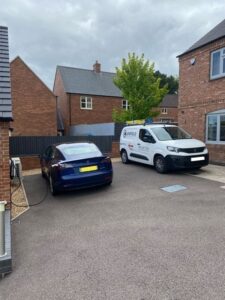
What Our Clients Think
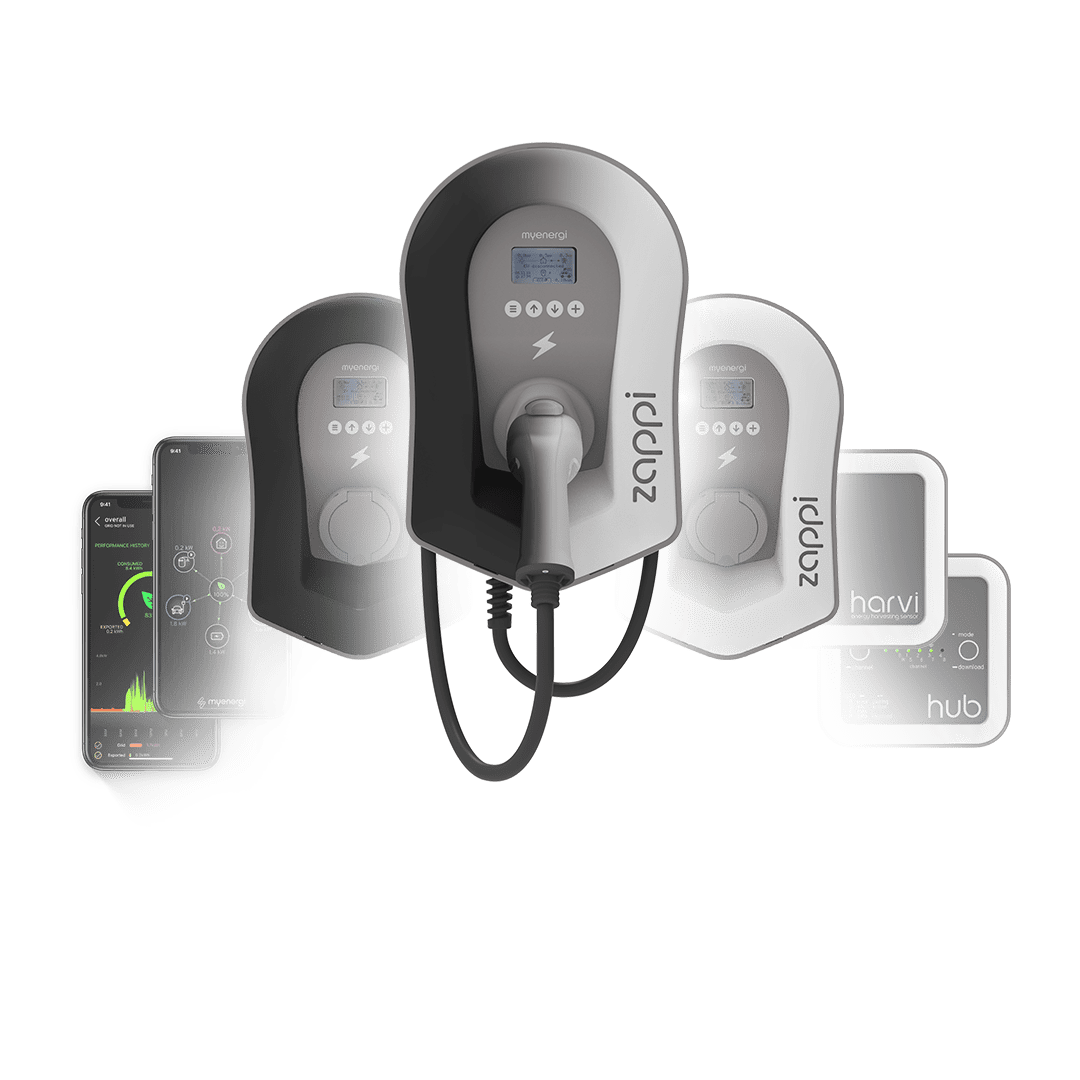
 Upon purchasing my new electric vehicle, I was keen to get the home charging point installed quickly. Upon asking some friends, I was pointed to Glenfield Electrical. I emailed and was promptly booked in for a site survey. I felt reassured that the engineer knew what he was doing and was sent the full quote within the timeframes promised.
I placed my order and despite some delays because of the suppliers of the hardware, I was kept up to date all the way through. After the install, the team processed all of the paperwork related to the Government grant too. Since then I have recommended Glenfield to several people too.
A really good, knowledgeable and trustworthy company who I wholeheartedly recommend!
Upon purchasing my new electric vehicle, I was keen to get the home charging point installed quickly. Upon asking some friends, I was pointed to Glenfield Electrical. I emailed and was promptly booked in for a site survey. I felt reassured that the engineer knew what he was doing and was sent the full quote within the timeframes promised.
I placed my order and despite some delays because of the suppliers of the hardware, I was kept up to date all the way through. After the install, the team processed all of the paperwork related to the Government grant too. Since then I have recommended Glenfield to several people too.
A really good, knowledgeable and trustworthy company who I wholeheartedly recommend!